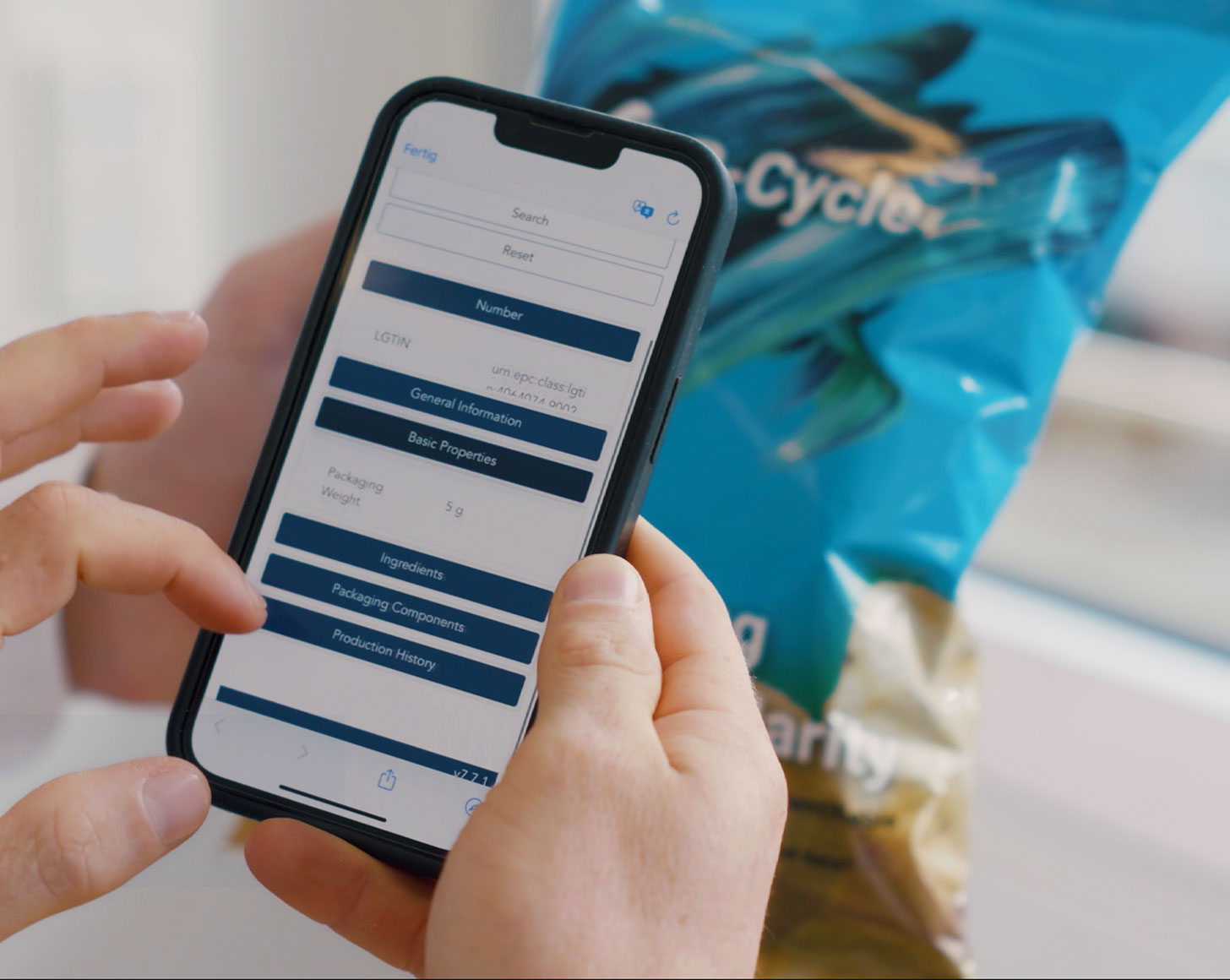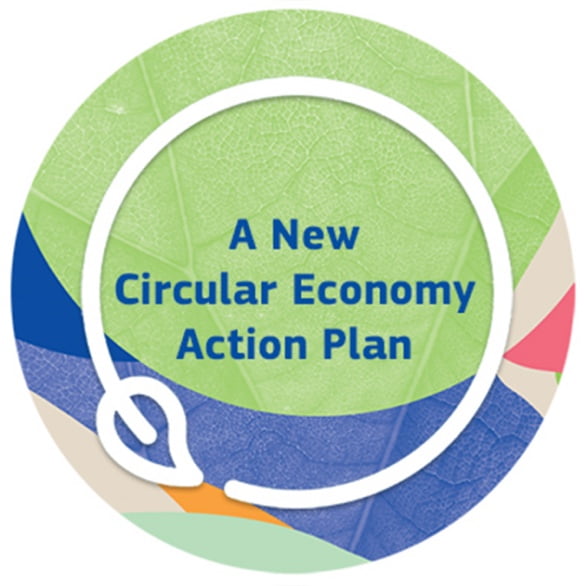The Digital Product Passport
R-Cycle provides a data infrastructure for the operation of digital product passports (DPP for short) for plastic products. A DPP is a system for collecting, aggregating and providing data on a product along its life cycle.
R-Cycle is not a concept - it is a working solution. We have an interoperable infrastructure that is offered as a software-as-a-service - accessible to any manufacturing, converting, sorting or recycling facility throughout the lifecycle of plastics. Combined with our experience from the R-Cycle community, this is your path to data-driven, efficient and sustainable value creation processes in terms of a true circular economy.


Open GS1 Standard
The data infrastructure behind R-Cycle is based on GS1 Standards - the leading global network for cross-industry process development and a founding member of R-Cycle. GS1 standards are used for more than six billion scanned barcodes every day. The underlying technology - the so-called EPCIS standard - is already successfully used in various industries worldwide, e.g. for the traceability of fresh food products.
Under the auspices of GS1 Germany, the PDS4CircularPlastics project (Processes and data sharing approach for enabling circular plastics value networks) was launched in early 2022. The goal is to develop a GS1 application guideline that describes the recycling-relevant process steps in plastics production and presents the necessary attributes for data transfer along the value chain. The project is based on the findings of the R-Cycle Initiative for automated storage of recycling-relevant data in digital product passports and forms the starting point for circular processes and their operationalization.






Marking as a bridge between product and data
R-Cycle links digital data with physical products. In order to be able to retrieve the digital product passport for a product, suitable markers are required. R-Cycle is flexible in choosing the right marking and can be used with any available technology.
For pre-products or industrial packaging, simple QR codes are suitable, while for end products in the consumer sector, digital water marks enable recognition even in highly automated waste sorting processes.
Strong alliances for a common goal
To develop a global standard, partnerships are essential. There are other initiatives that aim to achieve the same strategic goals as R-Cycle. For example, the renowned "Digital Watermarks Initiative HolyGrail 2.0*" is investigating whether digital watermarks can be used as a suitable marking technology for consumer goods packaging. Therefore, R-Cycle is actively participating in "HolyGrail 2.0" as part of the "Data Management" work package to drive this initiative with expertise from the R-Cycle community and to ensure that both approaches complement each other.
*Digital Watermarks Initiative HolyGrail 2.0. Driven by AIM – European Brands Association, powered by the Alliance to End Plastic Waste






Product passports are demanded politically
The European Union's Circular Economy Action Plan calls for "mobilizing the potential of digitizing product information, including solutions such as digital passports, labeling and watermarking" or "promoting the use of digital technologies for tracking, tracing and mapping resources." R-Cycle's digital product passport already meets this requirement and lays the groundwork for upcoming regulatory requirements.
Development
R-Cycle is continuously developed on the basis of the GS1 EPCIS standard to meet future market needs. The R-Cycle community acts as a consultative committee. Members of the community can thus contribute their own requirements to the developments and add further data elements.
You have questions? We have answers!
The circular economy is an economic system that is restorative and regenerative by design. It aims to maintain products, components and materials always at their highest utility and value, and to gradually decouple economic activity from the consumption of finite resources.
The benefits of the circular economy include reducing waste, increasing resource efficiency, creating economic opportunities and reducing environmental impacts. It also helps create a more resilient and sustainable economy.
Companies can implement circular economy by developing products and services that are more durable and repairable, use renewable energy sources, and reuse and recycle materials. They can also work with other companies to create closed-loop systems and share resources.
The biggest challenges of the circular economy are the lack of infrastructure and resources, the need for new business models, and the need for political and legal support. In addition, awareness of the circular economy and its benefits needs to be raised.

